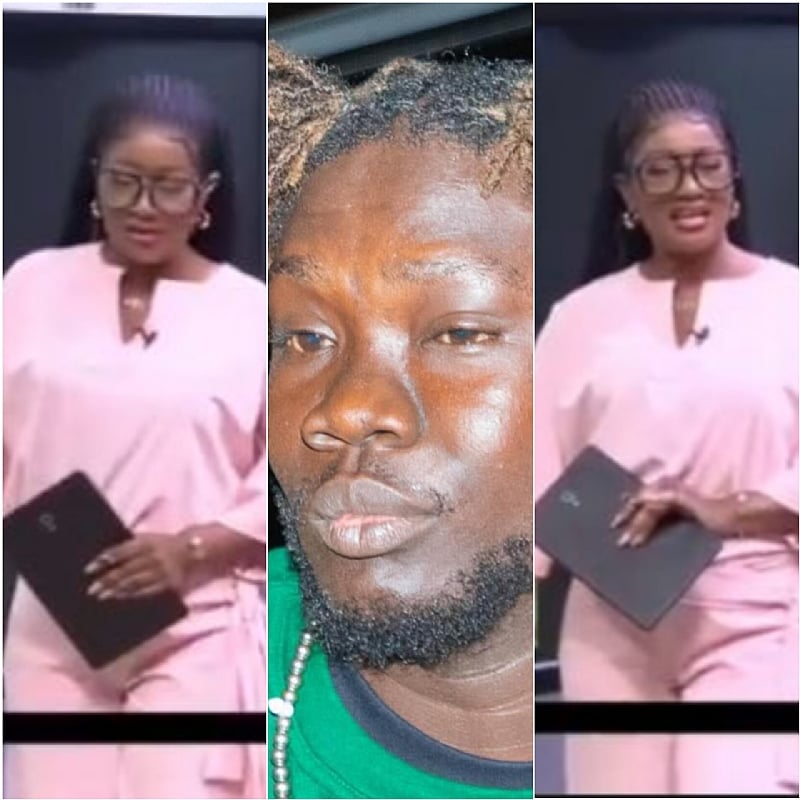Showboy, a Ghanaian entertainer and artist, engaged in a public discourse with an Adom TV presenter following criticism of his remarks concerning event organizers’ preference for Nigerian artist Mayorkun over Ghanaian artists for Pent Hall week celebrations. Showboy’s initial comments, which sparked the debate, centered on the perceived neglect of Ghanaian talent in favor of international acts, particularly during prominent events like Pent Hall week. He questioned why organizers would choose Mayorkun, a Nigerian artist, while overlooking equally talented Ghanaian musicians for these high-profile performances.
The Adom TV presenter, in response to Showboy’s assertions, characterized him as a social media commentator prone to exaggeration and questioned his credibility as a musician. This sparked Showboy’s rebuttal, in which he maintained a respectful tone despite the criticism leveled against him. He acknowledged the presenter’s position at Adom TV and emphasized his general respect for women, stating that he would not reciprocate the perceived disrespect directed towards his brand and career. This measured response set the stage for a more nuanced discussion about the issues he raised regarding the Ghanaian music industry.
Showboy proceeded to defend his artistry, highlighting his dedication and the effort he invests in his music. He asserted his identity as a “great entertainer and a great performer,” emphasizing the hard work and commitment he pours into his craft. This defense served to counter the presenter’s implication that his comments stemmed from a lack of genuine musical talent or effort. He portrayed himself not as a disgruntled commentator but as a dedicated artist invested in the success of the Ghanaian music scene.
Furthermore, Showboy articulated his frustration with what he perceives as a systemic issue within the Ghanaian music industry – the inadequate support for local talent. He expressed a sense of disillusionment, even hinting at the possibility of giving up due to the perceived lack of recognition and support. He broadened the conversation beyond his personal experience, suggesting that many creative individuals in Ghana share this sentiment and have either abandoned their artistic pursuits or lost faith in the industry’s ability to nurture and promote local talent. This painted a picture of a potentially stifling environment for Ghanaian artists, where opportunities are limited and recognition is scarce.
He went on to propose a potential solution: providing more opportunities for local artists to showcase their talent, regardless of their perceived level of skill or experience. Showboy argued that giving Ghanaian artists the chance to perform and gain exposure is crucial for their development and the overall growth of the industry. He posited that talent alone is not enough; artists need platforms to demonstrate their abilities and connect with audiences. This, he claimed, is the responsibility of institutions like the Creative Arts Ministry and other entertainment agencies in Ghana.
In essence, Showboy’s exchange with the Adom TV presenter evolved into a broader commentary on the challenges faced by Ghanaian artists. He leveraged the initial criticism to highlight what he sees as systemic issues within the industry, advocating for increased support and opportunities for local talent. His response transitioned from a personal defense to a call for structural change within the Ghanaian music ecosystem, emphasizing the importance of nurturing homegrown talent and providing platforms for their artistic expression. This exchange brought into focus the debate surrounding the promotion of local versus international acts and the role of media in supporting the growth and development of Ghanaian music.














